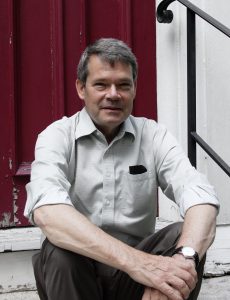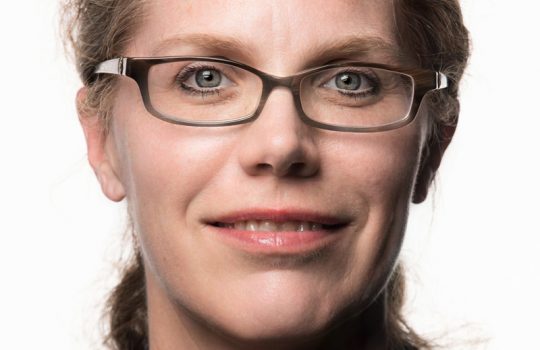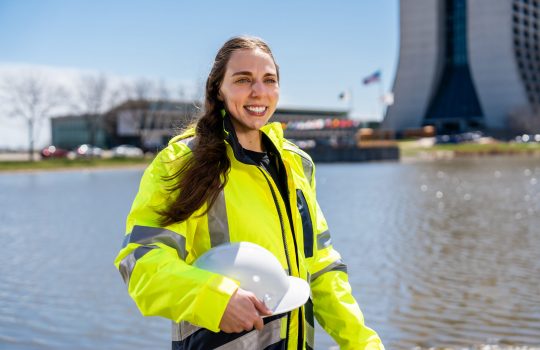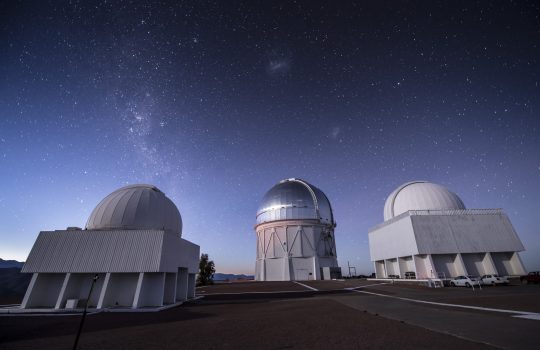On Oct. 1, Fermilab and University of Chicago scientist Rich Kron begins his three-year term as director of the Dark Energy Survey, or DES, hosted by Fermilab. Fellow Fermilab scientist Tom Diehl will serve as deputy director.
From 2003-2008, Kron was director of the Sloan Digital Sky Survey, an astronomical survey in which Fermilab was heavily engaged until 2008. In 2010, he stepped into the role of DES deputy director. Now, as incoming director, he succeeds Fermilab and University of Chicago scientist Josh Frieman, who became head of the Fermilab Particle Physics Division earlier this year.
The Dark Energy Survey is a multinational, collaborative effort to map hundreds of millions of galaxies and stars to better understand dark energy, the phenomenon behind the increasingly rapid expansion of the universe. Using a powerful camera installed on a telescope on a Chilean mountaintop, DES researchers are creating detailed maps of the southern sky to uncover patterns in the distribution of celestial objects that reflect — or reveal — the impact of dark energy on the formation of structure in the universe. They are also discovering and measuring properties of several thousand supernovae —distant exploding stars — to chart dark energy’s influence on the history of cosmic expansion. The data will help researchers narrow in on dark energy’s nature.
As the new DES director, Kron will lead the 400-strong collaboration through its final data-taking season, which runs from September 2018 to January 2019.
“I’m honored to be given the opportunity to lead the Dark Energy Survey to the conclusion of its operations and the production of the final science results,” Kron said. “My predecessor Josh Frieman capably led the collaboration through the past eight years, and I have learned a lot from him.”
Each season of observation — a total of six for DES — adds more and more data, increasing the survey’s sensitivity to distant galaxies. In 2019, the collaboration will have amassed its full data collection.
“We’ll have the entire data collection packaged together and can write the final scientific papers. We’ll make sure everyone is engaged and gets the opportunity to take advantage of this huge effort,” Kron said.
“Rich is an internationally recognized astronomer who brings a wealth of experience and expertise to this role,” Frieman said. “He has done an excellent job as DES deputy director and will be a strong leader for DES as it heads into its last months of data taking and its golden years of science analysis.”
And Tom Diehl, incoming DES deputy director, has been with the collaboration since its early years. He worked on the construction of the camera used for DES and has also served as DES operations scientist since 2012.
“It’s an honor for Rich to ask me to be deputy director. It will be my pleasure to do my best to help the collaboration and Rich,” Diehl said. “We have a lot of exciting work to do.”
Both look forward to “getting the science out,” Kron said, sharing the findings of the forefront experiment they’ve helped advance for several years.
“DES is on a good track thanks to the efforts of many other colleagues at Fermilab and elsewhere, and I look forward to working with this great team,” Kron said.





